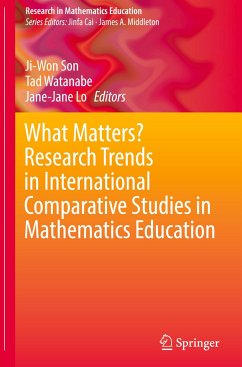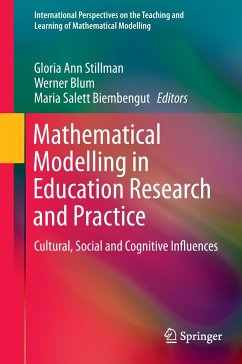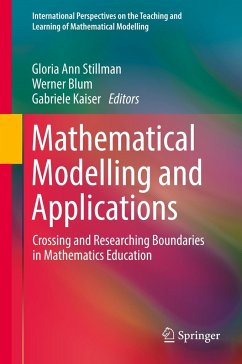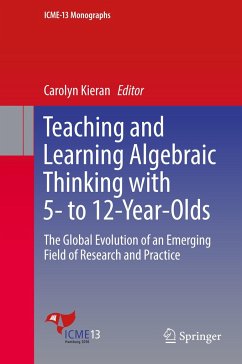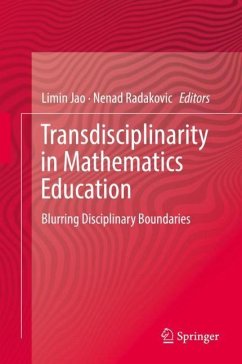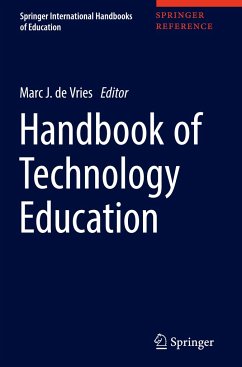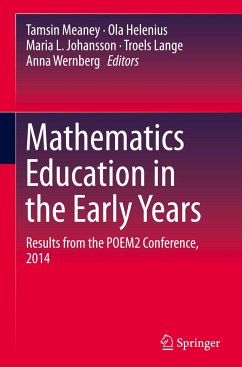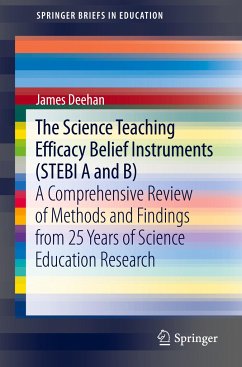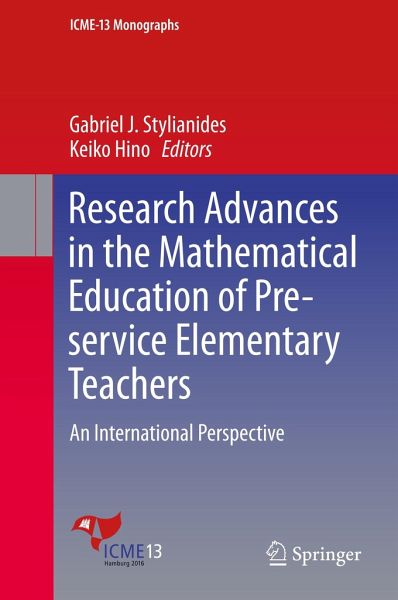
Research Advances in the Mathematical Education of Pre-service Elementary Teachers
An International Perspective
Herausgegeben: Stylianides, Gabriel J.; Hino, Keiko

PAYBACK Punkte
38 °P sammeln!
This book examines new trends and developments in research related to the mathematical education of pre-service elementary teachers, and explores the implications of these research advances for theory and practice in teacher education.The book is organized around the following four overarching themes: pre-service teachers' mathematics content and mathematics-specific pedagogical preparation; professional growth through activities and assessment tools used in mathematics teacher preparation programs; pre-service mathematics teachers' knowledge and beliefs; and perspectives on noticing in the pr...
This book examines new trends and developments in research related to the mathematical education of pre-service elementary teachers, and explores the implications of these research advances for theory and practice in teacher education.
The book is organized around the following four overarching themes: pre-service teachers' mathematics content and mathematics-specific pedagogical preparation; professional growth through activities and assessment tools used in mathematics teacher preparation programs; pre-service mathematics teachers' knowledge and beliefs; and perspectives on noticing in the preparation of elementary mathematics teachers.
Including contributions from researchers working in 11 different countries, the book offers a forum for discussing and debating the state of the art regarding the mathematical preparation of pre-service elementary teachers. By presenting and discussing the findings of research conducted in different countries, the book offersalso opportunities to readers to learn about varying teacher education practices around the world, such as: innovative practices in advancing or assessing teachers' knowledge and beliefs, similarities and differences in the formal mathematics education of teachers, types of and routes in teacher education, and factors that can influence similarities or differences.
The book is organized around the following four overarching themes: pre-service teachers' mathematics content and mathematics-specific pedagogical preparation; professional growth through activities and assessment tools used in mathematics teacher preparation programs; pre-service mathematics teachers' knowledge and beliefs; and perspectives on noticing in the preparation of elementary mathematics teachers.
Including contributions from researchers working in 11 different countries, the book offers a forum for discussing and debating the state of the art regarding the mathematical preparation of pre-service elementary teachers. By presenting and discussing the findings of research conducted in different countries, the book offersalso opportunities to readers to learn about varying teacher education practices around the world, such as: innovative practices in advancing or assessing teachers' knowledge and beliefs, similarities and differences in the formal mathematics education of teachers, types of and routes in teacher education, and factors that can influence similarities or differences.






